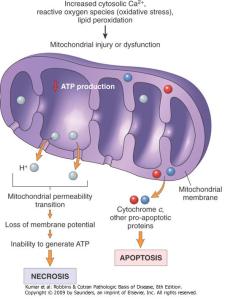Some people say that a calorie restriction (CR) diet is difficult to follow. It used to be. But things have changed: Thanks to great work by leading scientists, current approaches to calorie restriction are just as much about cell signaling as about limiting calories.
It is known, for example, that serious long-term CR dramatically lowers insulin levels.1 Another hormone, with a similar molecular structure, insulin-like growth factor one (IGF-I), shares the same pathway with insulin and is downregulated by CR in animal studies and by calorie restricted humans who do not follow high protein diets.2
And there’s the rub. For if you hope to benefit from calorie restriction and do not pay attention to the special properties of macronutrient intake, individual foods, and food preparation, you may get an unpleasant surprise: excessive stimulation of the insulin/IGF-I pathway. For example, in a study using healthy volunteers, just 50 grams of white potato starch sends glucose and insulin soaring3 to levels associated with increased risk of cancer, heart disease and diabetes.4
Back in the 1930s, when the term calorie restriction was first applied to Dr. Clive McCay’s rat and mouse experiments,5 it was entirely appropriate because the focus was on calories since he was looking at growth retardation. Of course, little was known about the signals involved in the life-extending effects of the diet. All that changed as scientists discovered important cell-signaling patterns that produce the phenomenal life-transforming effects.6
In 2008, The CR Way took the latest CR science and crafted it into a holistic lifestyle that makes following a CR diet easier by transforming it into a happy, positive lifestyle that focuses on living better now and quite possibly living longer. Recipes, food choices, and lifestyle are deliciously and strategically planned to reduce the insulin / IGF-I pathway activity – making disease risk plummet, while increasing the probability of a longer life.
# # #
__________
1. Fontana L, Meyer T.E., Klein S, Holloszy J.O. Long-Term Calorie Restriction Is Highly Effective In Reducing The Risk For Atherosclerosis In Humans. Proceedings of the National Academy of Science USA 2004;101(17):6659–6663.
2. Fontana L, Klein S, Holloszy J.O. Long-term low-protein low-calorie diet and endurance exercise modulate metabolic factors associated with cancer risk. American Journal of Clinical Nutrition. 2006;84:1456–62.
3.Brand-Miller JC, et al. Mean changes in plasma glucose and insulin responses in 10 young adults after consumption of 50g carbohydrates from potato (high-glycemic index; GI) or barley (low-GI) meal. American Journal of Clinical Nutrition. 2005 Aug;82(2):350–4
4. Guideline for Management of Post-meal Glucose, International Diabetes Federation, 2007 ISBN 2−930229−48−9
5. McCay CM, Crowell MF, Maynard LA. Journal of Nutrition. l0:63–79, 1935
6. McGlothin PS, Averill MS. Advances in Calorie restriction. Antiaging Medicine. 2009 Aug;4(4):440–441











